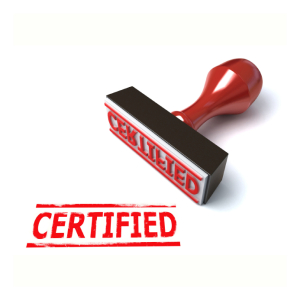Let’s take a moment and think about what we learned in college and/or university. There’s a good chance that aside from your core courses you may have taken a few electives such as humanities, calculus, history, psychology and so on. Looking at what you currently do, how many of these courses that you learned in college do you still use? Not many are there? I’m not saying that these courses hold little or no value, but it’s definitely not as significant or contributing much to what you’re presently doing.
This brings to question the half-life of skills, which used to be much more 20 or 30 years ago, but now has significantly reduced. Does it mean that your college degree is worthless? Even more of importance is the question that should the next generation of students and workforce forego college education since most of what they learn will be obsolete soon after they graduate?
The Evolution of the Education Sector
Technology is moving forward at an exponentially fast pace and with it innovation, business and education are forced to keep up to stay relevant. Sure, education is valuable and necessary to start off a career and be recognized as an employable talent, but how much value is it really providing? And for how long is its value of any worth?
The struggle that arises for education is how to ensure the skills and learning remains relevant and up-to-date. Because of the sheer pace of innovation and technological advancements the education sector has at to rethink not only its approach and delivery but also its curriculum.
Traditional learning in colleges and universities designed learning into quarters or semesters and students could choose their courses from the schedule these institutes offered. Along with this the educational institutes charged students hefty fees for the learning they sought. Basically, education was a scarce commodity and the owners of it (colleges and universities) dictated the rules.
Today, things have changed. The internet has connected of the world allowing new learning methods and opportunities to become a reality. Traditional learning is fast becoming less and less desirable because of the costs and time required to pursue it and because of the rapidly shrinking half-life of skills.
What’s Changing in Learning?
To start off their careers, most people opt for the four years college/university degree route. During this time they learn new skills – mostly those directly relevant to their chosen profession – however, only a few skills truly hold any value in the long-term. But a degree is nonetheless important as it allows you visibility by an employer. Basically, for what it’s worth, it allows you a ‘status’ that endorses your knowledge. Earning a Masters degree or a certification in networking skills are all types of ‘Status Learning.
On the other hand is ‘Functional Learning’ – the knowledge and skills you need to maintain functional relevancy. These are the skills you learn from many sources and based on your experiences and challenges you face in your career. For example a software engineer who leads a team of programmers would require management skills to perform his duties (his software development skills would be his status learning).
What’s interesting here is that students go to colleges and universities to learn status skills which become irrelevant (if not obsolete) faster than their functional skills. And the fact is that functional skills are actually being learned elsewhere. Online learning platforms such as Coursera (2.8 million registered students), Udacity and Khan Academy are massively gaining popularity as options that challenge traditional educational institutes. In fact, colleges and universities have embraced this as the way forward by jumping on the bandwagon themselves. Stanford University has about 60 million course downloads on Apple’s iTunesU And Harvard University and MIT have developed EdX to compete with Coursera.
Professionals around the world have leaped on this opportunity, enabled by technology, to obtain skills that’ll help them remain relevant. Think about it, why go back to a university for 2 or more years, pay huge fees and learn skills that may just end up being outdated right after you graduate, when in fact you could obtain similar skills (which may be valuable for a longer time) from online platforms. Platforms that allow you flexibility of time, location and choice of courses.
What’s to Come?
So, having said all that, the half-life of skills is reducing at a faster rate than it was 10 years or more ago. Here are a few trends that are emerging because of this:
1. Employer Acceptance
Everything can’t be taught at educational institutes within a fixed time frame of 4 years. Employers are becoming more aware of this fact and are opening up to the idea of hiring individuals who’ve earned non-credited courses. In fact there’s a rising trend of employers believing that courses taken online are as credible as those at traditional educational institutes.
2. Enhanced Competition
At present traditional educational institutes charge a fortune for the learning they impart with in contrast to the free or nominal fees charged by their online counterparts. But as demand continues to grow and the viability of free services diminishes you can expect to see online platforms competing with traditional educational institutes. Could it mean increased quality, credibility and acceptance for online courses? Also, are traditional educational institutes going to become less attractive options? Will they be able to redesign their curriculum in time to remain relevant?
3. Faster Pace
In the digital and technology age speed is paramount. It’s what drives everything these days. It’s all about the speed of launching new products, innovation and even how fast skills are learned. With diminishing skills comes the need to quickly become relevant again. Hence, today’s talent knows that time is against them and if they’re to grow professionally, their skillsets need to enhance at a much faster rate.
Summing It Up
Have you noticed that ever year Tech giants like Apple, Samsung, Google and others launch a new product (sometimes it’s even twice a year). Of course, the engineers and product developers behind these innovative gadgets are working hard to update their skills so that they can not only create new products but also hold on to their jobs! But what we sometimes forget is that it’s not just the techies who need to be concerned about the half-life of their skills. Everyone in an organization who is linked to the new product should have the same concern. The sales team needs to continuously be learning about the products that are being launched for them to make sales. The accounts and finance department needs to understand key aspects of every product in order for them to be able to accurately perform their duties. Sure the fundamentals of selling and accounting won’t change as rapidly, but without current, updated knowledge, you won’t be able to keep up with the rapid changes experienced by your organization.
According to John Seely Brown who co-wrote the book A New Culture of Learning, the half-life of a learned skill is 5 years. What that means is that much of what you learned 10 years ago is obsolete and half of what you learned 5 years ago is irrelevant by now. If that’s so, are you going to let your skills rapidly become irrelevant? Is your organization going to invest in the continuous growth and enhancement of skills of its talent and avoid being irrelevant?
Business & Finance Articles on Business 2 Community(145)
Report Post






